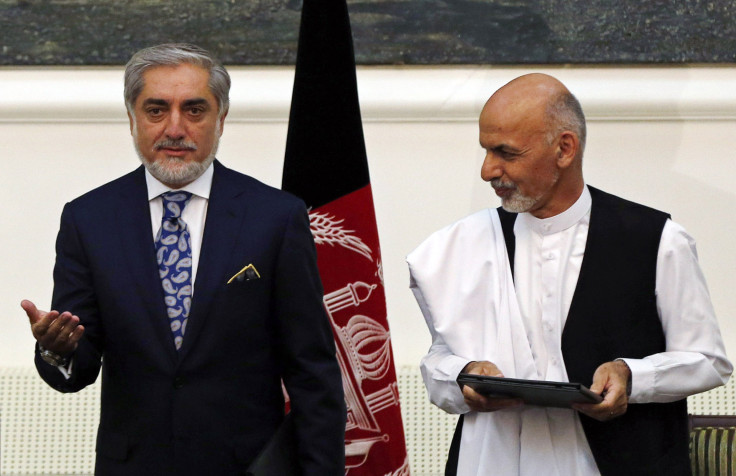US Troops In Afghanistan Could Lose Combat Role, Face Bigger Risk From Taliban Attacks

Ashraf Ghani was sworn in as the new president of Afghanistan Monday, clearing the path for a bilateral security agreement that will allow nearly 10,000 U.S. military personnel to stay in the country beyond the end of 2014. The agreement will see U.S. military personnel deployed as advisers to train and equip Afghan security forces, with U.S. special-operations personnel for anti-terrorism missions against al Qaeda and other terrorist groups.
While the new role puts an end to regular combat missions for the U.S. military, the reduced number of overall personnel may leave the force more exposed.
"In terms of the protection issues, this was a concern of the vice president who wanted the zero personnel option, but Obama disagreed," said Lisa Curtis, senior research fellow at the Washington-based Heritage Foundation's Asian Studies Center. Vice President Biden's "main concern was that as U.S. forces decrease, they will become more susceptible to being attacked."
Biden wanted the zero option, which was all troops out of Afghanistan by the end of the year, because he believed that a diminished force would be more vulnerable to attacks. Obama, however, has opted to keep a significant presence in the country, with the figure dropping to 5,000 troops in late 2015 and then a full pullout by the end of 2016. U.S. General John Allen recommended to Obama in 2013 that the figure should be 20,000 and said that 10,000 represented a “high-risk option.”
“I think Obama’s decisions should be based on conditions on the ground rather than any kind of political schedule,” Curtis said. “But with everything that is happening with ISIS in Iraq and Syria, pressure may build on the White House to reconsider these aggressive timelines.”
The long-awaited security pact is likely to be signed Tuesday, according to John Podesta, a senior adviser to President Obama, and will help to stabilize fears regarding the country’s economy and security.
The transfer of power is the first since Hamid Karzai became president in 2001 and looks likely to be the most peaceful yet in a country that has been at war for the best part of four decades.
Ghani was forced to accept a power-sharing deal with the official presidential runner up Abdullah Abdullah after being accused of electoral fraud during the June elections. The national unity government, which was brokered in U.S.-led negotiations, will now begin the difficult process of putting together a cabinet; internal disputes, such as an unseemly argument over office space in the presidential palace, have already put both camps at loggerheads.
The bilateral agreement, which was negotiated by Karzai -- who refused to sign it -- will be followed up with a similar deal with NATO as both sides attempt to avoid the problems that Iraq has experienced since U.S. troops left in 2011.
“Signing this agreement will help bring some stability and clarity to the situation in Afghanistan,” Curtis said. “But actually 9,800 troops is really the bare minimum to help backstop Afghan forces and help conduct the counter-terrorism missions that will need to be conducted.”
A development that may drive the White House to reconsider a pullout is the resurgence of the Taliban, which has gained ground over the summer and took the Ghazni region last week, a strategically important location that links the east and the west of the country. Reports indicate that the Taliban may be willing to consider an alliance with ISIS, linking Afghanistan to the terrorist movement the U.S. is currently fighting in Iraq and Syria.
ISIS-allied militants allegedly beheaded as many as 15 people and killed 100 more in a joint attack with the Taliban on several villages in the region of Ghazni on Friday.
While Curtis believes the union possible but not likely, Dr. Gareth Price, an Afghanistan expert at London’s Chatham House think tank, said it was possible that a splinter group of the Taliban is already copying ISIS tactics on the ground. "Given the factionalizing that seems to be happening in the Pakistani Taliban, it's not surprising that a group has decided to show allegiance to the Islamic State," he told NBC.
© Copyright IBTimes 2024. All rights reserved.












